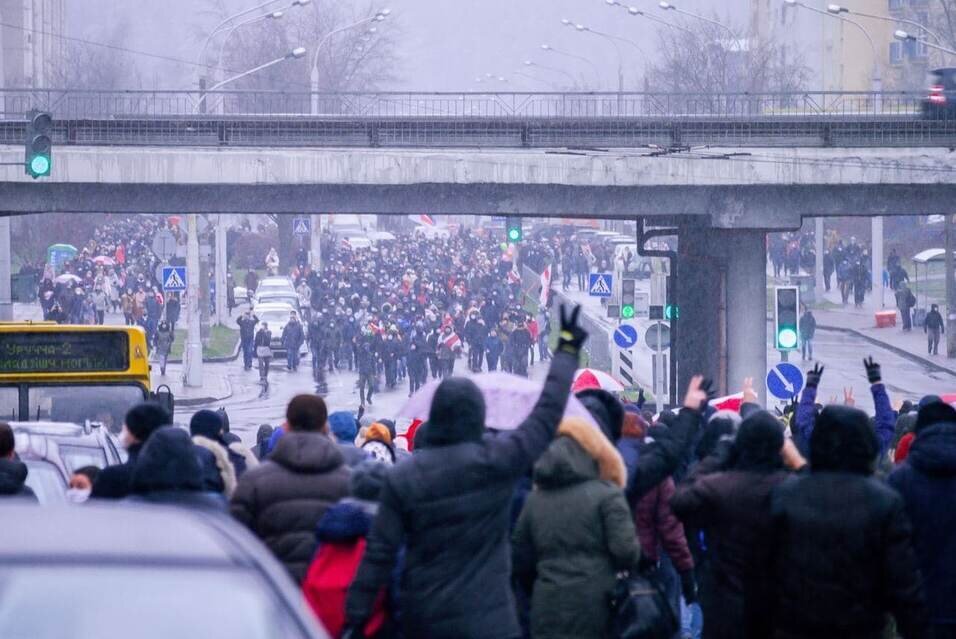The protests evolve to reduce risks of detentions as the authorities continue to tighten screws
 The situation has not changed
The situation has not changed

By Valeria Kostyugova
The confrontation between the Belarusian people and the authorities continues to expand. Protesters have reduced the risk of detention by adopting dispersed protest tactics and local acts of solidarity, however, the authorities penalise any public expression of dissent. Standards of governance continue to deteriorate as workplace accidents, equipment malfunctions, “acts of God” and information leaks increase in number and frequency.
Last week, new groups joined the protests. Every day there were reports about new people joining the strike at different enterprises. Belarusians organized several events in support of ER doctor Artsiom Sarokin and TUT.by journalist Katsiaryna Barysevich, who made public the medical report on Raman Bandarenka, allegedly killed by the security forces. Both Sarokin and Barysevich were arrested on trumped-up criminal charges of disclosing medical data, however, no action has been taken in respect of Bandarenka’s death.
The position of the authorities appears to be that killing a protestor does not constitute a probable crime but disclosing medical evidence about the victim does. Evidence of police violence and serious injuries received by people in gaol have still not been investigated; no action has been taken in respect of more than 2000 such reports since early August. Meanwhile, Tsikhanouskaya’s team aspires to bring those officials responsible for such crimes to justice under the principles of universal jurisdiction.
Journalists, doctors, teachers, workers, priests are charged with criminal or administrative liability every day on an unprecedented scale, however, the protests do not abate. Civic initiatives strive to support the victims. The largest fundraiser, BYSOL, has already paid out some EUR 1.9 million to victims of the regime.
On November 29, the 113th day of protests, the “Neighbours March” was held across Belarus with more than 40 assembly points in Minsk alone. The security forces struggle to suppress these dispersed protests as their military equipment and water cannons are useless in such circumstances. Dozens of security officials in line, scouring residential neighbourhoods and playgrounds look disturbing even in today’s Belarus. After they depart, residents come out and crowds regather.
Water, electricity, and heating interruptions in residential blocks, workplace accidents and fires at factories occur almost daily in Belarus. The By_Pol initiative (former security officials Telegram channel) is receiving more and more evidence of abuses from the security forces. However, the edifice of power is not yet crumbling.
The authorities’ mendacious parody of dialogue on constitutional reform has failed; not a single person from the opposition was invited to participate. On November 28, the Coordination Council published a concept paper on national reconciliation and Sviatlana Tsikhanouskaya has expressed her desire to meet with President Putin.
Subscribe to our newsletter




Situation in Belarus
Constitutional referendum: main consequences


 Video
Video
How to count the political prisoners: are the new criteria needed?


 Video
Video
Paternalism In Decline, Belarusian Euroscepticism, And The Influence Of Russia


 Video
Video












